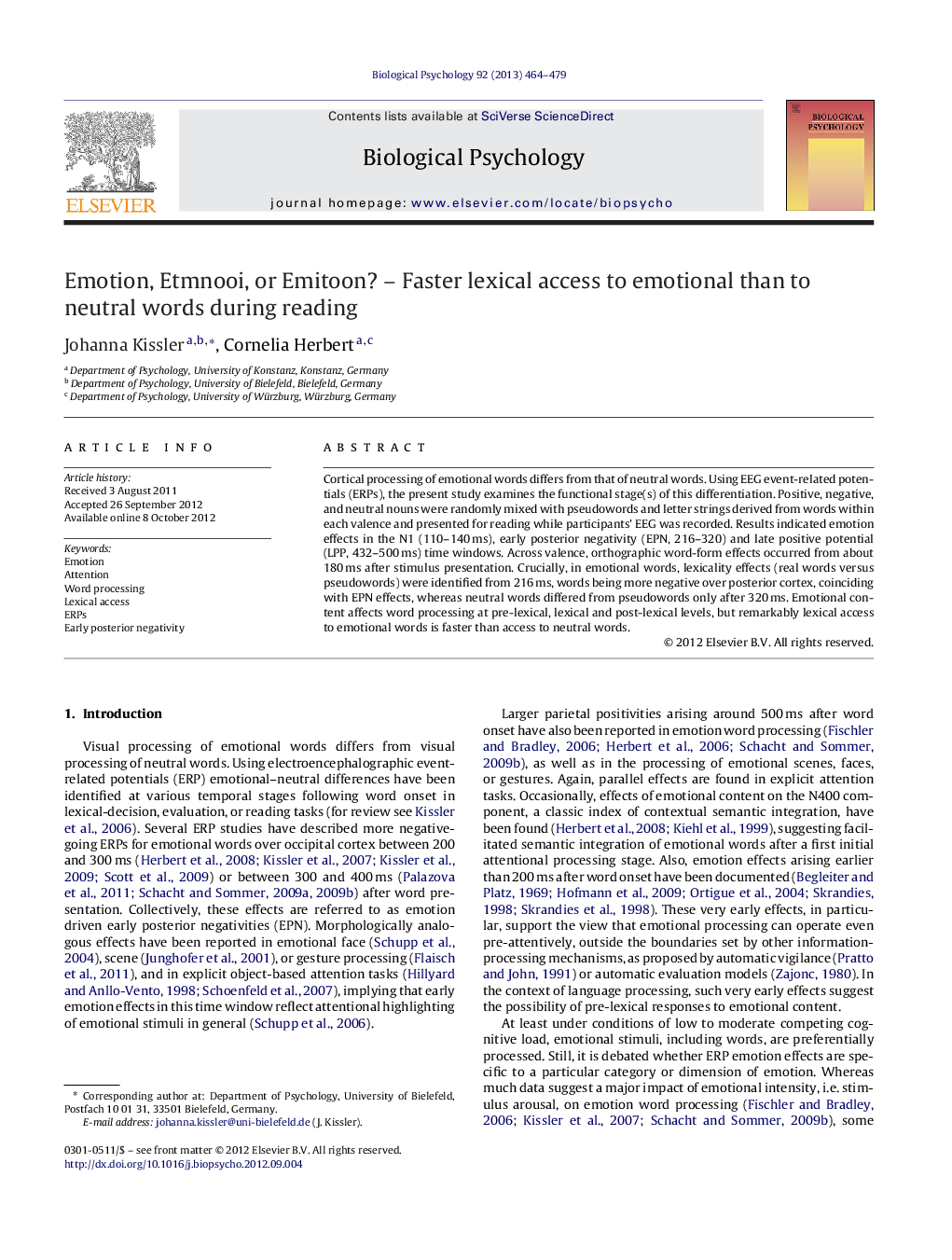| Article ID | Journal | Published Year | Pages | File Type |
|---|---|---|---|---|
| 921014 | Biological Psychology | 2013 | 16 Pages |
Cortical processing of emotional words differs from that of neutral words. Using EEG event-related potentials (ERPs), the present study examines the functional stage(s) of this differentiation. Positive, negative, and neutral nouns were randomly mixed with pseudowords and letter strings derived from words within each valence and presented for reading while participants’ EEG was recorded. Results indicated emotion effects in the N1 (110–140 ms), early posterior negativity (EPN, 216–320) and late positive potential (LPP, 432–500 ms) time windows. Across valence, orthographic word-form effects occurred from about 180 ms after stimulus presentation. Crucially, in emotional words, lexicality effects (real words versus pseudowords) were identified from 216 ms, words being more negative over posterior cortex, coinciding with EPN effects, whereas neutral words differed from pseudowords only after 320 ms. Emotional content affects word processing at pre-lexical, lexical and post-lexical levels, but remarkably lexical access to emotional words is faster than access to neutral words.
► Emotional words differ from neutral words at pre-lexical, lexical and post-lexical processing stages. ► Lexical access is faster for emotional than for neutral words. ► Early posterior negativity reflects faster lexical access to emotional words during reading.
